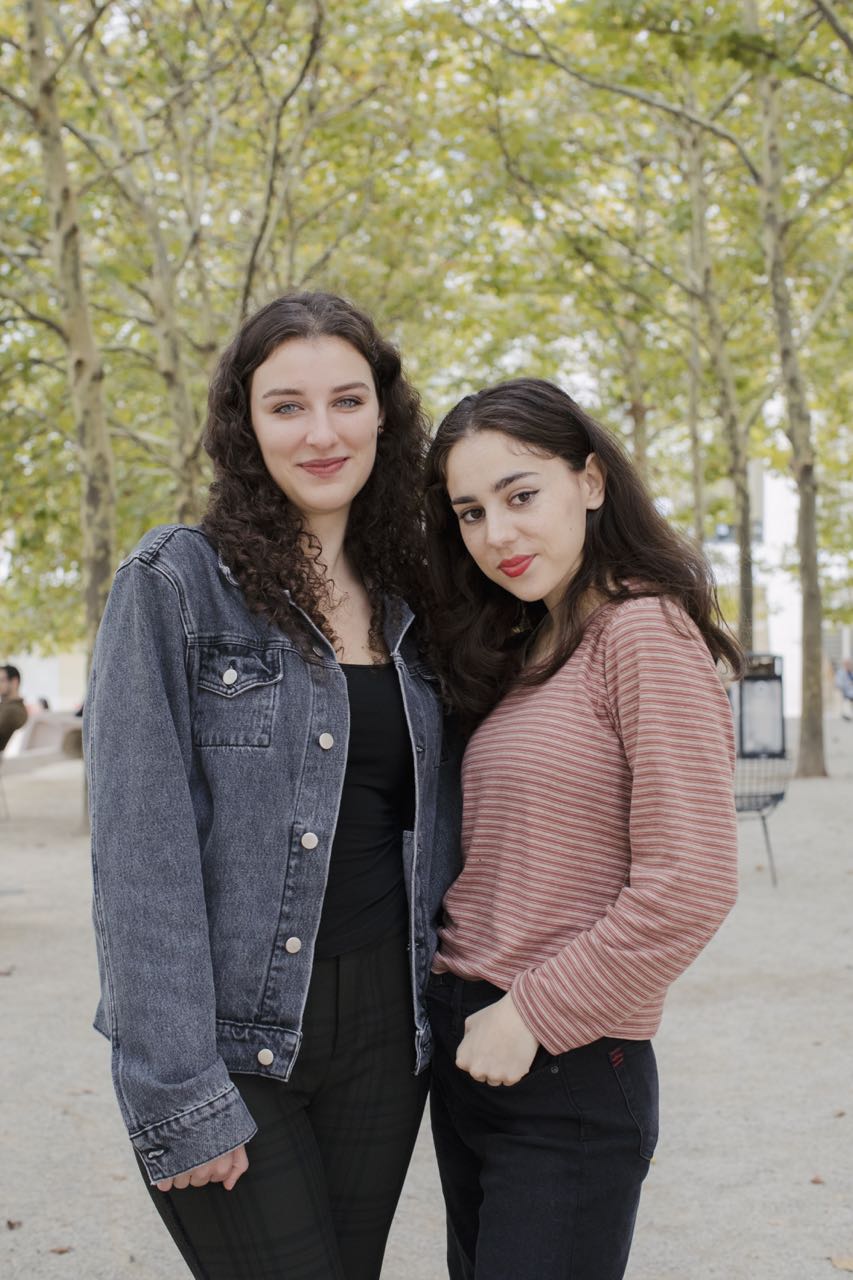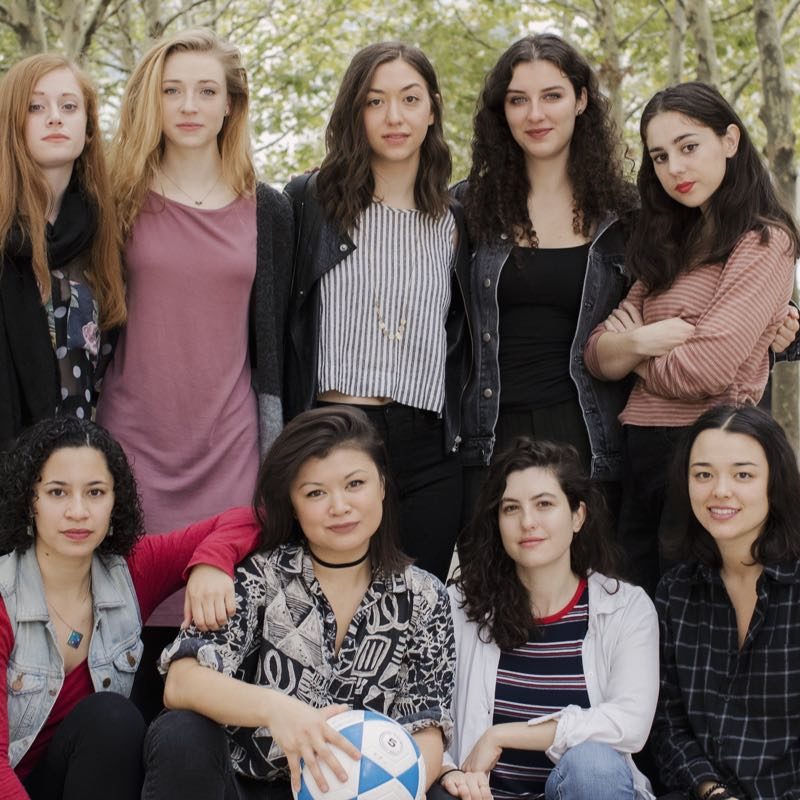Women of “The Wolves”

Photography by Jacqueline Harriet
November 8th, 2017
Last fall, one of the hottest tickets in town was to The Wolves, a new play by Sarah DeLappe and directed by Lila Neugebauer about an all-girls high school soccer team. Despite the ubiquity of teen girls as cultural bellwethers, there was still some surprise that a play about teen girls could be so popular with so many different people. Now, after two sold out runs, The Wolves is back—this time at Lincoln Center Theater. Over the next nine weeks, we’ll be speaking with the actresses who make up the team of The Wolves. Check back every Wednesday for more with the cast!
This week we talk to Tedra Millan. And be sure to keep scrolling and check out past chats with Brenna Coates, Samia Finnerty, Sarah Mezzanotte, Lizzy Jutila, Paola Sanchez Abreu, Jenna Dioguardi, Midori Francis, and Susannah Perkins.
Tedra Millan
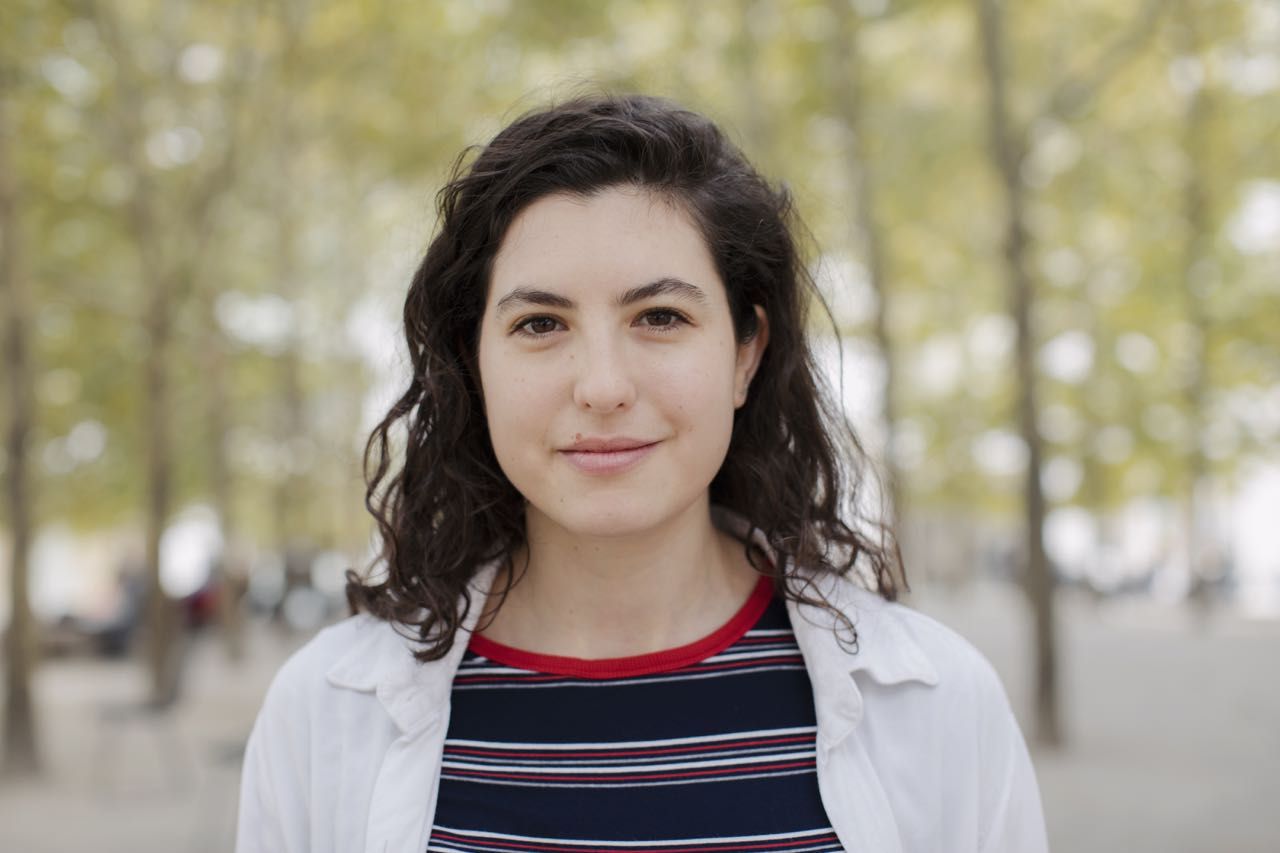
Since you’ve been with the show for a long time, what’s been the most interesting thing to you about that experience?
It’s honestly been such a gift. I’ve never experienced anything like it. We met each other inside the homes that we were about to live in together for five weeks up at New York Stage & Film. So, it’s been such a rare animal of meeting the girls sort of as their characters and having the chance to play soccer in fields up in Poughkeepsie and getting to do the work. No reviewers are allowed to come up to New York Stage & Film, so it was an amazing opportunity to just play around knowing that we would be safe to try whatever we wanted and to figure out what worked and what didn’t work. And then when we got to New York, we had the chance to do it not only once, but twice. So it’s been an ever-evolving and changing and growing beast that has taken us to Lincoln Center. I’ve never experienced anything like it, where we’re able to all grow as individuals and grow as a team on the field and off the field. It’s been pretty magical.
When we did it at the Duke, we did it right before the election, and doing it before the election and then post election—it was only a month apart—but it changed dramatically how we as individuals felt. And now, coming back a year later, we had to make a decision of making it almost a period piece where Trump can’t really be the President. When the election happened, a lot of people entered this new realm of groundedness, and we realize that bubble couldn’t have burst for these girls yet. So doing it before the election and after the election has just awoken all these new ideas and feelings, and I think that that has been a really interesting thing of doing it again in this time.
What do you find to be the most interesting thing about your character and has that changed over time?
46 is a very special girl. She’s what some would call a weirdo. I call her fantastic. Lila Neugebauer said to me early on, “I’ve met a lot of these girls in life before, but I don’t think I’ve met a lot of #46s,” which resonated with me pretty hard in finding her quirks and finding what she’s about and how she stands and how she interacts with her surroundings. I’ve taken a grander sketch of who she is and then as we’ve gotten to do it more and more, she’s become more of a fleshed out person in this world and not just an idea. She’s grown as I’ve grown.
The Wolves has an all-female cast and female director and writer. What has it been like working with such a big group of women?
These women are my sisters. I don’t have any sisters, so they have truly become family to me. I think the reason that this ensemble works so well is that everyone is so drastically different from each other that everyone brings a very distinct energy to the table. We just have this beautiful chemistry where we all jive so well together, and I really have never experienced anything like it. We’re so close as people, but when we get on the field, it’s like I’m looking into the eyes of a completely different person. These people are just extraordinary and so generous and so kind and so fresh. Every time we do the show, it’s a different show. Moment to moment is different and everyone is so alive. It’s been a truly beautiful experience to get to know these people and these characters. It’s an incredibly generous group of people. I can’t say enough good things about them.
What do you think the theatre community can do to have more stories by and about women on stage?
I think people need to listen. I think what’s happening in the world right now is incredible, that people are coming out and starting to say, “This happened to me.” The #MeToo campaign was, I think, a huge step for women. I think it’s wild how our society has grown with technology and grown in all these different ways, but women have sort of been in the dust for so many years. Now I think it’s starting to come to the forefront of people’s minds that, “Oh wow, yes, the second half of our breed also has thoughts and feelings,” and women are really starting to be recognized. I think people just need to listen and people need to write these stories and producers need to hire more women. Having plays written by women and directed by women and having women as the leads and not to be shown as simply a “strong woman,” but as a real woman with vulnerabilities and with strengths and with weaknesses. I think that The Wolves brings a lot of different female ideas to attention about abortions and about tampons and about tall these things—I don’t know how often a tampon has been a word in a play. I think these things need to be talked about more and I hope they are.
What’s your relationship like with ambition?
Ambition always sounds like a dirty word, and I don’t know why. I think for me, my ambition is to just tell stories—to tell the right stories. That’s why I’m an actor. That’s why I’m an artist. I want to be able to tell stories and do my part to show the world what’s going on and what’s not going on and how we can learn from each other. So, ambition to me is just a desire to explain the human condition.
What’s something that you’ve learned from working with cast mate Brenna Coates?
Brenna and I play rivals in the show, which couldn’t be further from the truth in real life. Brenna is insanely talented and insanely brilliant and wise and she’s just this radiant force of cool and of not cool and of humor and wit and generosity. Working with her is unbelievable. I think the relationship between our two characters on stage has grown so much, and it is just so fun to be around her while we’re acting and while we’re not acting. She’s just this burst of amazingness. I love her so much. She’s a very, very good friend of mine.
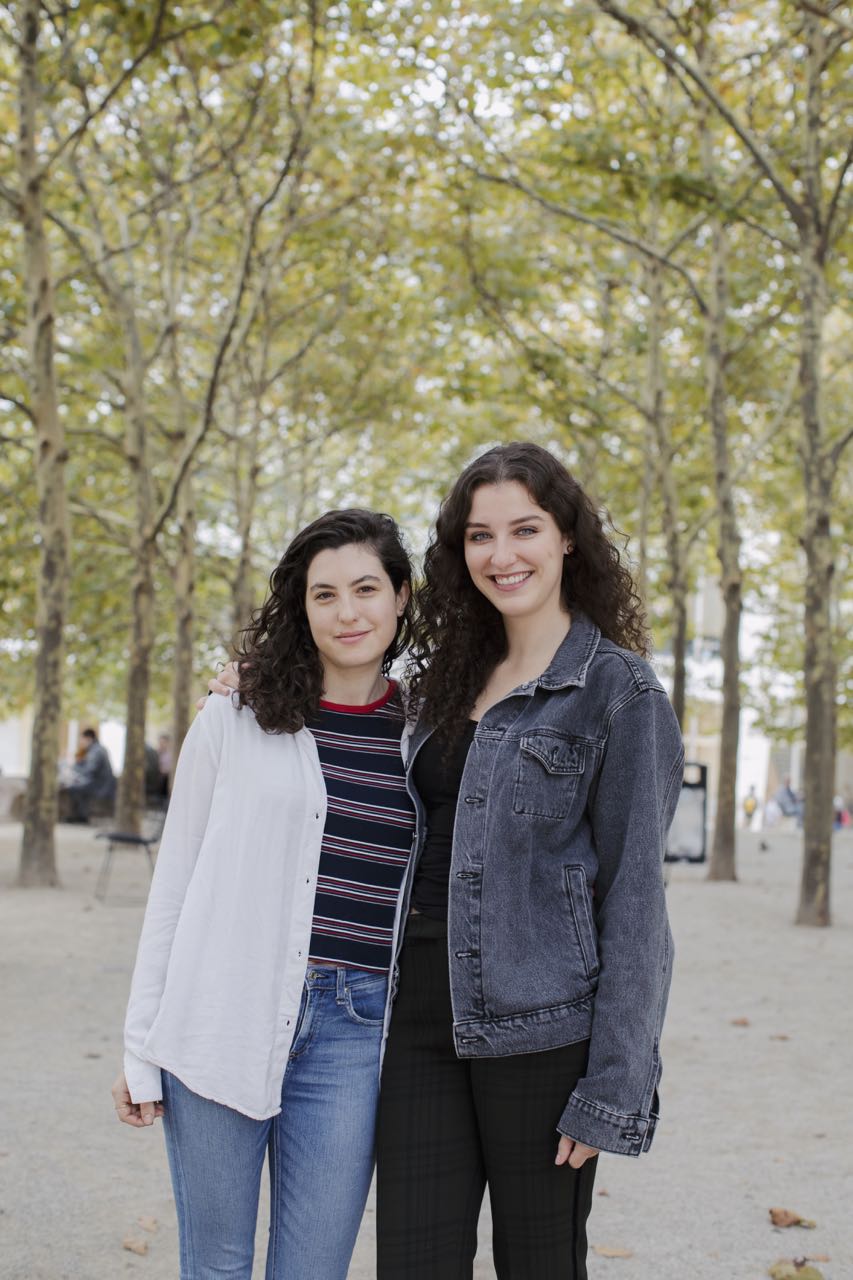
Susannah Perkins
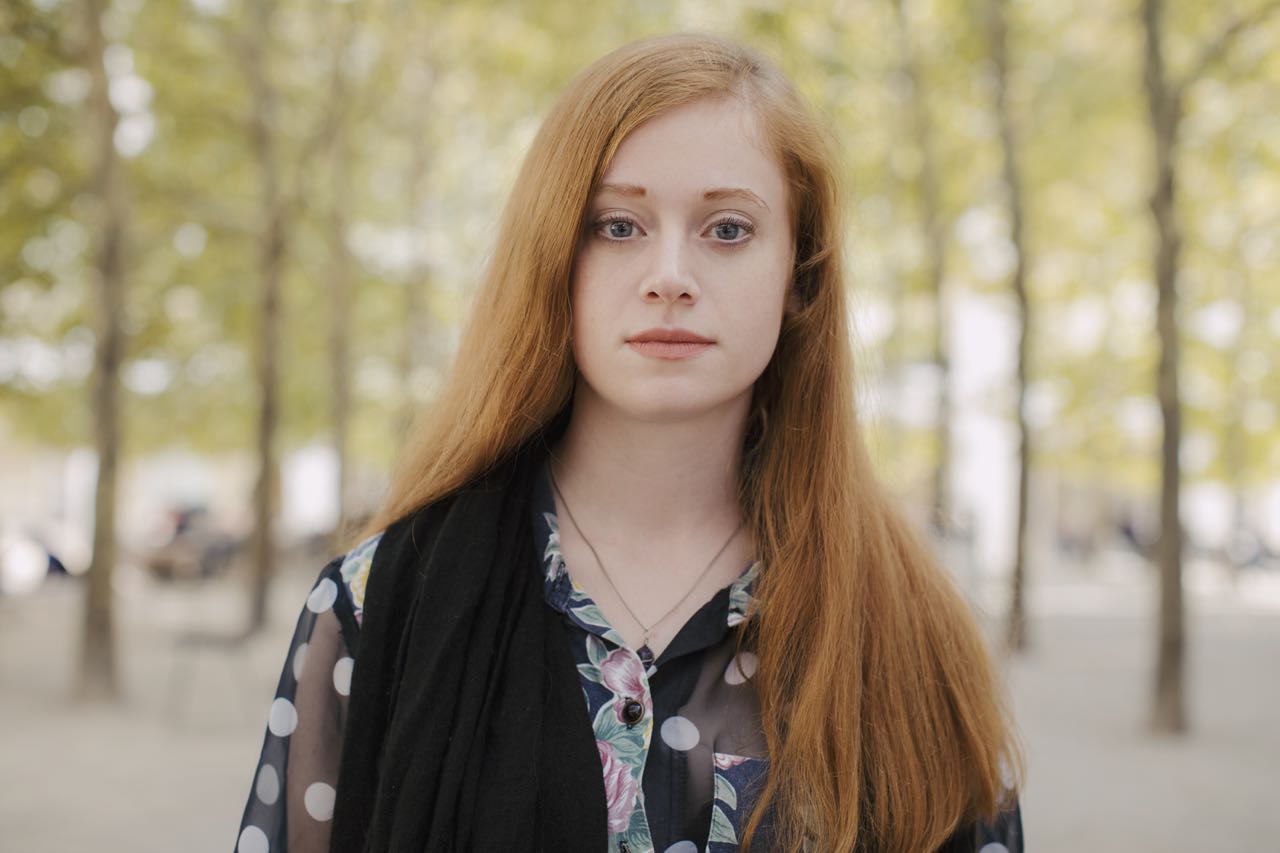
Since you’ve been with the show for a long time, what’s been the most interesting thing to you about that experience?
For me the most interesting thing in doing the show so many times—because I’ve been doing it since an early NYU workshop of it in 2015—has been the way that audiences receive the show. It’s super interesting who responds vocally to the show—who finds it funny, who’s disturbed by it. And in time that’s changed. I think at Lincoln Center, specifically, the audiences are quite a bit older than the audience we had at the Duke. It’s interesting the different ways that people listen. There are some instances of pretty intense language, and one of the main things that’s interesting about this play is that it’s a bunch of teenage girls often behaving badly. It’s super interesting to see whether people can meet us in that place right away with a sympathetic ear or whether we have to reel them in through smaller intimate moments over time, throughout the duration of the show.
What do you find to be the most interesting thing about your character and has that changed over time?
I think when I initially started doing this show, I was often made really sad and upset as an actor by how many times I fought with the other high-schoolers in the play. I would describe my character as confrontational. And the way that she is confrontational throughout the course of the play… I used to find it a little bit draining as an actor. But what’s been different, and how it has changed over time, is that I’ve been able to find a lot more of the joy of the correcting people. The joy of getting things right has been something new.
The Wolves has an all-female cast and female director and writer. What has it been like working with such a big group of women?
It’s been really interesting to do shows that are not The Wolves, because for so many of us this was our first professional credit. I think I kind of assumed that every play would be this way, that every play would be this big group of very, very wonderful, amazing, supportive women. Not to say that other experiences have been negative; it’s just jarring to be in shows with men now. There is kind of nothing negative to say about this process. It’s been amazing.
What do you think the theatre community can do to have more stories by and about women on stage?
I think it would be fucking dope if the people writing the stories could see women as people. I think things will only change once we’ve stopped looking at women as other, or through the lens of being a little bit off from center. Once we’re able to center women as people, as human people, as the heroes of their own stories, I think that things will start changing. And it’s such a micro change in thinking that has to happen on the parts of the people who are telling these stories.
What’s your relationship like with ambition?
I’ve always been a deeply ambitious person. I work hard. That’s been true of me from a young age. And to tie it back into your earlier question, I think we as a society have this real need to see women as fundamentally desire-less. As sort of like, people who don’t try, people who are able to pull off beauty effortlessly, or people who achieve success but only if they’re not really trying, to see women as people who can have talent, but who are not workers. And I’m totally grossed out by that. I think that ambition and desire are fundamental to the human experience. I feel grateful to be living in the time that I’m living in and to be in this show that is so about female ambition. I feel really lucky to be in the place that I’m in.
What’s something that you’ve learned from working with cast mate Tedra Millan?
Teddy burst into my life when we did the Poughkeepsie run of this show in the summer of 2016. I was totally intimidated by her because she was this beautiful, strange creature from the very first read through and such a smart actor. I kind of held her at arm’s length for a couple months because I was so blown away by the magnitude of her performance in this show. And, once we became friends, I deeply regretted not having started the process earlier, because she is such a rockstar and such a funny weirdo, and such a good friend. So I guess the lesson there is that people are just people; they shouldn’t make you nervous.
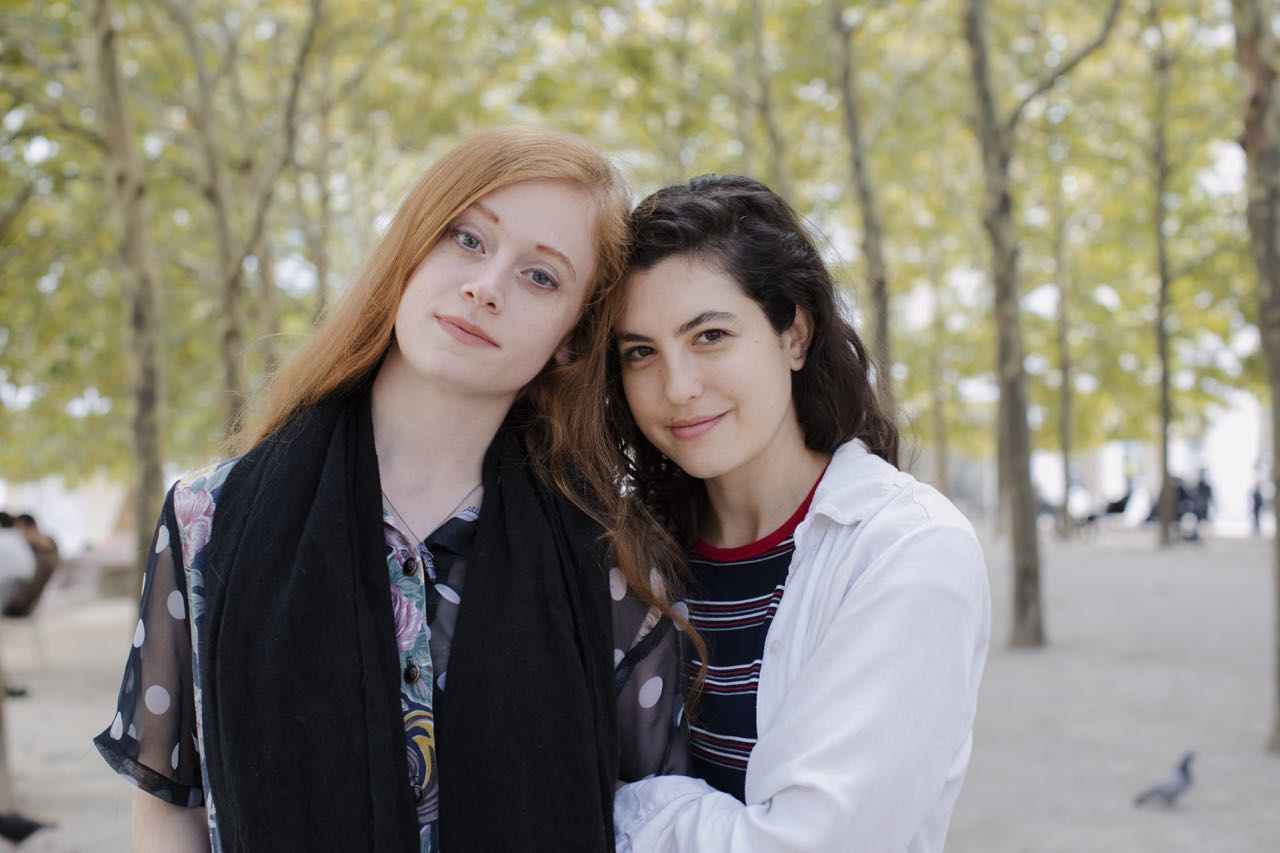
Midori Francis
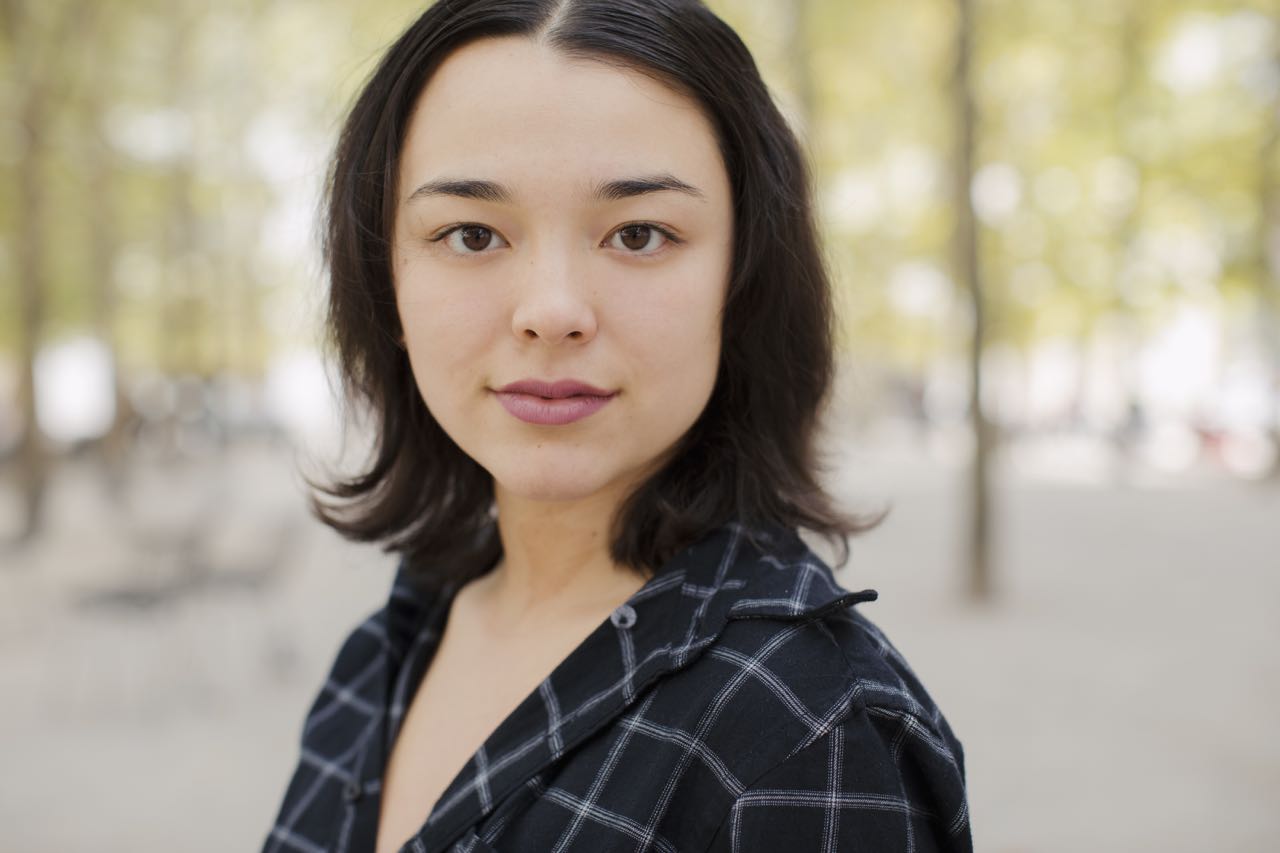
Since you’ve been with the show for a long time, what’s been the most interesting thing to you about that experience?
I guess the most interesting thing, having been with this show for quite a while now, is that how it grows seems to be pretty infinite. There is really no bottom or cap to this experience. It’s actually incredible that you can be with the same group of people night after night, and at this point year after year, and it can still feel brand new and it can still feel just as fresh and just as scary as that first table read back at New York Stage and Film.
What do you find to be the most interesting thing about your character and has that changed over time?
It hasn’t changed actually. I think some of the first instincts and impulses we felt upon reading it for the first time were, in many ways, right, but those first sort of bubbling suspicions have become clearer to me. I play a character who has this dichotomy between the things she says and the depth of her experience. With number eight, it’s been a particularly challenging and interesting journey, because she’s someone who’s experienced a ton of loss and tragedy not too long ago in her very young life, but at the same time, she’s somebody who is bouncing around with the excitement and the giggliness of somebody who seems like they’ve never been hurt before. It’s been a really cool journey to find the line and to find where those two things cross, and I love playing a character like that. She’s somebody who I also relate to in that way.
The Wolves has an all-female cast and female director and writer. What has it been like working with such a big group of women?
It feels kind of like a redo. I am a woman in my 20s and I feel like it’s been a redo of all the negative associations I’ve had with being a woman growing up, which seems like an enormous thing to say. To work this intimately with a particular group of women who really support each other and encourage me and see me and want the best for me at any given moment has been very healing and very encouraging.
What do you think the theatre community can do to have more stories by and about women on stage?
Produce new work, I think. There are so many young, hungry playwrights out there, and we really [need to] get these plays out of the reading and workshop phase, which I feel I see a lot, especially in New York. And also putting my voice in for women of color who need to tell stories that have not been told as frequently as they deserve. These plays are often given readings and workshops, and I think it’s about being that person who can really take them from that phase and take the risk to produce them. And also having the courage to write and to believe in your work even if it seems like the statistics are against you. I think that’s a very important thing, because you kind of have to say, “Eff you” to statistics and pursue your dreams as you would if you had no limits.
What’s your relationship like with ambition?
It’s a very personal one, like I would compare it to my relationship with my dreams. I think it is very key to who I am and have always been. Ambition is that thing that gets me out of the bed in the morning and it’s been that thing since childhood that has made me look around and say, “I want more for myself than what is here, and I want more for myself than what may be inevitable if I don’t fight for change or if I don’t rise above my circumstance.” And I also think that ambition can get a bit confused, philosophically speaking, and I don’t think it has to go hand in hand with other people. Ambition to me is a very personal journey, it’s a very personal relationship. There is that saying about comparing yourself to who you were yesterday and not necessarily comparing yourself to those around you, and I do believe that. I’m very grateful that I have that philosophy because I do truly believe that, in terms of ambition, I’m fighting for that little girl that I was and I’m trying to be more than I am.
What’s something that you’ve learned from working with cast mate Susannah Perkins?
That it’s cool to be smart. That being different is actually the most beautiful thing. Sometimes I think seeing qualities in yourself that you may have previously shunned, on someone else that you really care for and respect, can open up your mind and make things clear to you. Susannah is very strong, very smart, and simultaneously very silly and almost outrageous, and to see all of those qualities coexist in one person and realize that you don’t have to declare one thing and that you can just be all of what you are, I think Susannah is really the definition of that. And from an acting standpoint, I act with her a lot during this, and she showed me as an actor that it’s possible to be both very present and very spontaneous while also being consistent and being incredibly grounded. Susannah also has the ability to really ponder things on stage, and watching the text come out her mouth with such clarity is really beautiful. It’s been fun to grow up together in the last year and a half.
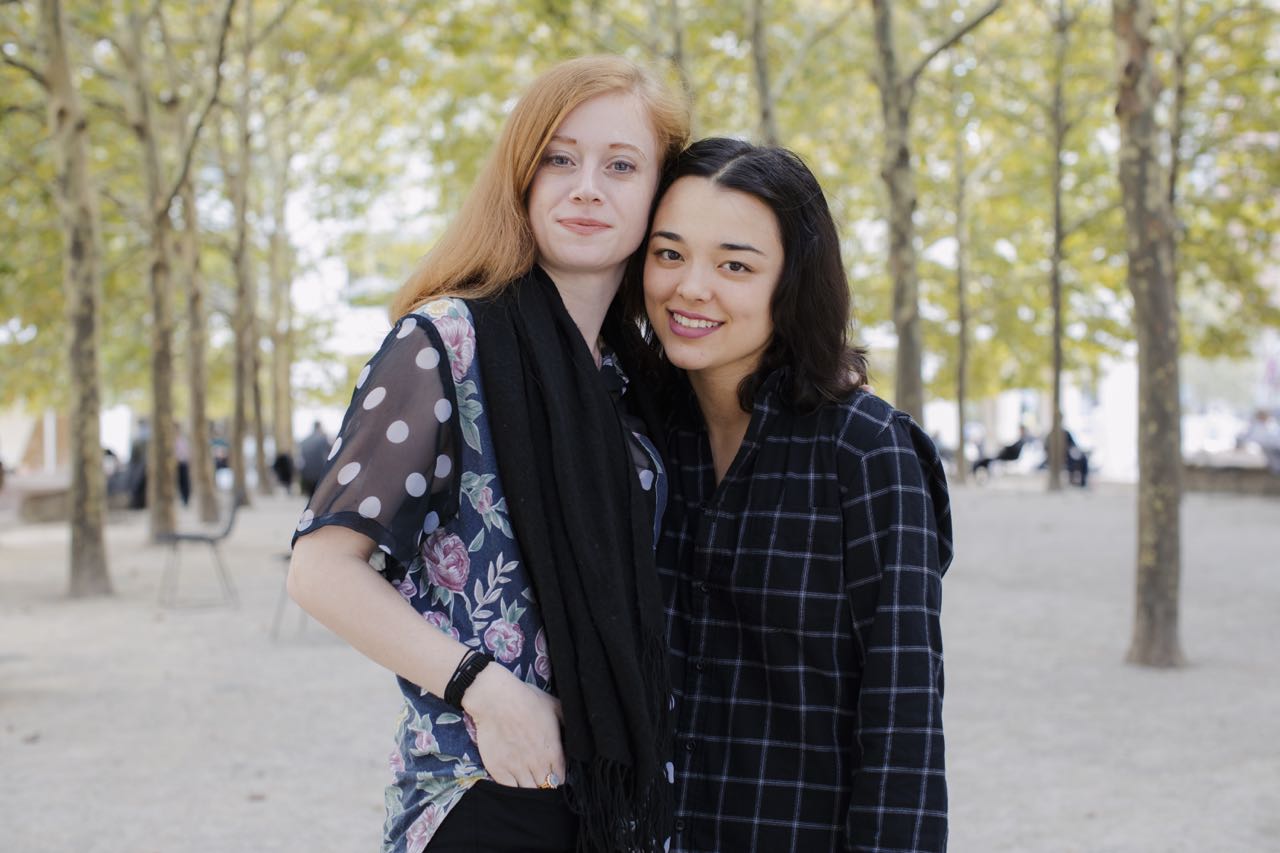
Jenna Dioguardi

Since you’ve been with the show for a long time, what’s been the most interesting thing to you about that experience?
It never fails to be interesting. I’ve been with it since a very early workshop at NYU when I was a senior there. I tell Sarah DeLappe all the time that she created a play that never fails to bring something new into the room each time we touch it. I think that the most interesting part about switching physical theatres has been to see how we manifest in these different spaces, because it always changes the way the play feels. Being at Lincoln Center, we have an entirely new physical space to play with, and it is, I think, the perfect physical space for this play because of the circular structure of it. When we’re on stage we’re running in circles, when we’re off stage we’re running in a circle to make it around for our next entrance, and it just really fits the emotional space of this play. Also, it is such a privilege and a joy to keep discovering things about my character and to keep watching my co-workers discover things about their characters, because as soon as you think there’s nothing left to discover, something new pops up. It’s pretty amazing.
What do you find to be the most interesting thing about your character, and has that changed over time?
It’s definitely changed. When I first started playing Number 13 almost three years ago now, I never thought of her or any of the characters as an archetype, but I definitely was like, “Well, she is a class clown. She’s always making jokes. She never takes anything too seriously.” Those were the first things I discovered about her. As I started to create the character in a three dimensional way I was like, “Oh well, you know what, there’s actually some things about her that aren’t super fun, even though she comes off really fun on stage.” She is deeply insecure and she hides it with her humor mechanisms, and she is insensitive at times, and that’s not really fun to always feel. Now, the biggest discovery I’ve made about her since we started up again is the amount that 13 actually has to grow by the end of the play, and I’ve been really enjoying working with that new element. We all have to grow by the time you get to the end of the play because of what happens. She’s not a self-conscious person at all for the majority of the play, and then our big event happens and she’s got to sit down with herself and be like, “What are you going to do now? This is like a new phase of your life. How are you going to treat people?” As the play is ending, I think 13 is growing into the next level of who she going to be. That is just a step further into being an adult, and that has been what I’ve really enjoyed working with this time around.
The Wolves has an all-female cast and a female director and writer. What has it been like working with such a big group of women?
It’s great. It’s the best. Admittedly, when I heard that we were going to be living together up in Poughkeepsie at New York Stage and Film when we were starting this whole journey with this group, I was like, “This is going to be a nightmare!” It’s nine women living together, working together, we’re all around the same age, we’re all pursuing the same thing. Unfortunately, because of how society paints women and how it’s so steeped into our brain, I was like, “This is not going to go over well.” It was beautiful from the start, and only continues to be that way. I feel so lucky for this to have been my first job out of college. Over the past two-ish years, working with this professionally, I’ve started to figure myself out as a woman more than I ever was able to before. Also, with our political climate right now, there is this resurgence of amazing feminism, and I think to go to work every day in this room of powerful, individual, unafraid women is totally unbelievable and such a privilege.
What do you think the theatre community can do to have more stories by and about women on stage?
I think they just have to write them. There are so many stories. There are so many stories about women in the theatre community, if they’re not already listening to women, they just have to listen and they have to ask questions. Ask women questions about their lives and about their opinions. Also, sort of say “fuck it” to every story we’ve already heard about women because, I think, we’re moving past a lot of how women have been painted in theatre in the past couple of decades and we’re moving into a new movement here, and there are new stories to be told. They just have to keep their ears in tune.
What’s your relationship like with ambition?
I feel very closely tied to ambition, and really only in a positive way. I think I grew up in an extremely privileged environment where I’m left with very little recollection of ever being told I couldn’t do something, and I think that has shaped me as a woman and as an artist and as an adult. I do not come from a family of artists. My sister is a musician, but before us there were really no other professional artists in the family. So the fact I was never shot down when I was like, “Hey, I want to act and I want to do this, and it’s really the only thing I want to do,” has certainly fed my drive, and I’ve always had this goal to do this thing. And with each step of my career I only want to do it more. So, it’s a pretty cool feeling.
What’s something that you’ve learned from working with cast mate Midori Francis?
I love Midori so much. It’s like I got my own little BFA from the school of Midori Francis. She is unbelievable. I think that when I first came into this job, I was pretty fresh out of school, and I still sort of had this belief that actors were either good or not good—like they either had it or they didn’t, and I just sort of hoped that I had it. And then when I met Midori, I remember the first read through of the play with her, I was like, “Holy shit, this woman knows exactly what she is doing.” That was on day one. She is making such specific choices. She is putting so much thought and individuality into the creation of this character from the very beginning and I was like, “Oh, that’s what it is! That’s what it means to have it or to be good.” It’s an extremely hard work ethic, which she has taught me is invaluable. And also being an individual. I have come so much more into my own since knowing Midori because of how she is as an individual.
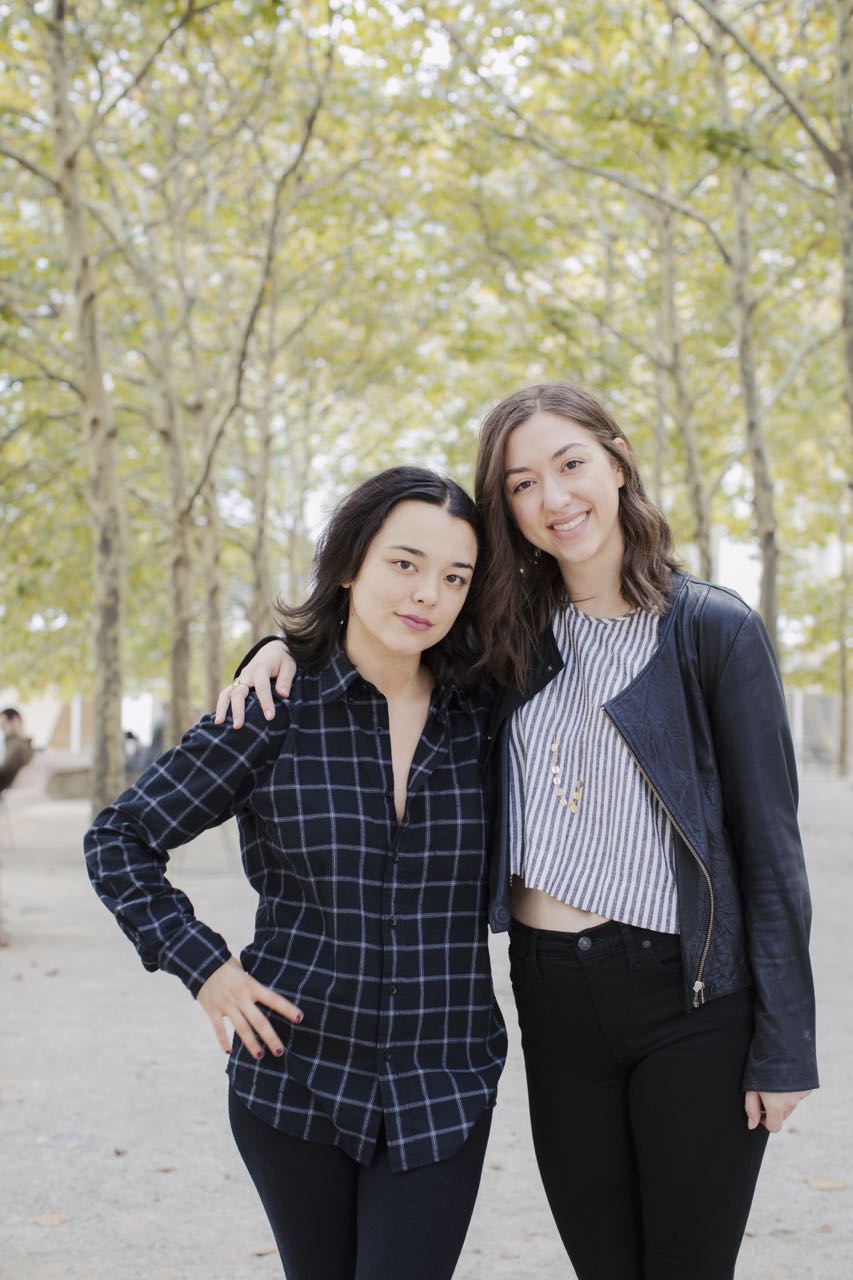
Paola Sanchez Abreu
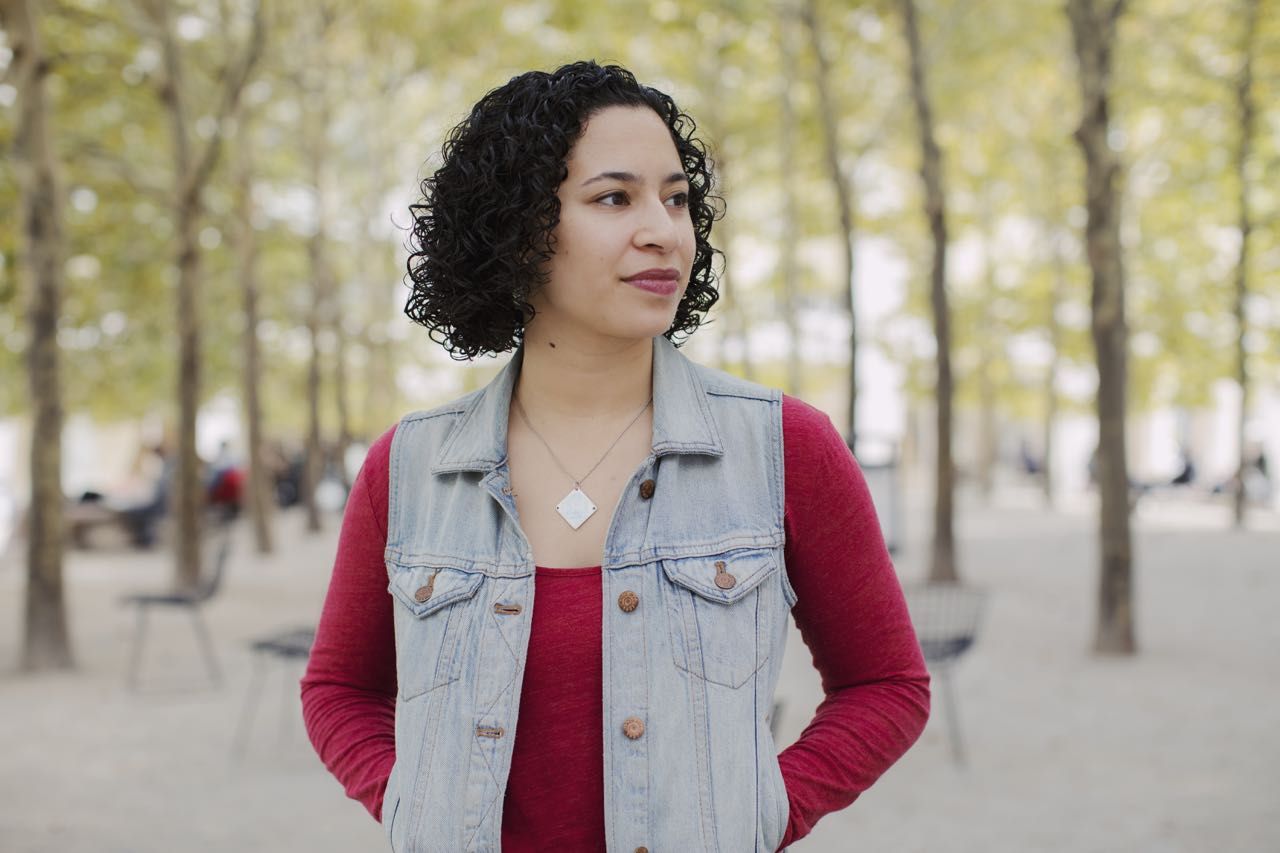
What’s been the most interesting thing to you about this rehearsal experience?
I am the only new cast member of this iteration, so what was interesting about this rehearsal process was that all of the other women had already lived with this play from the beginning, workshops and readings, all the way to the run at Playwrights Realm at the Duke, and now this. So I was immediately immersed in the world, because all of these women knew so surely what the world was and who they were in that world. I’ve never had an experience where I go into a rehearsal process and I get to play with so many people that are so sure of the characters already. And Lila, as well, knowing so well the scope of the play and how things work and how things run. We called it the immersion method, where I was just dropped right in and we started doing scenes right away and I just got to play around and see where I fit into this world that they had created.
What do you find to be the most interesting thing about your character?
I’m 100% in love with number 25, because she reminds me so much of myself. I think the thing that I love most about her, at least in the beginning of the play, and I still think it holds true at the end, is that she has such high stakes in the game and truly nothing else matters but the game, and because of that, there’s a sense of disconnection with the real world. She lives so strongly in the world of playing the game of soccer that the realities of caring about other things in life kind of fall away. There’s something really lovely about that, as far as the truth of that in being a teenager; you can focus really strongly on the thing that’s in front of you. I find that to be a really admirable quality about young people, because it’s so easy to get distracted with the grander things in life once you get older.
The Wolves has an all-female cast and a female director and writer. What has it been like working with such a big group of women?
It’s been really delightful. We have a little dressing room journal that we write whatever thoughts and things that pop into our mind, and it’s full of silly things and serious things. One day I sat down and I wrote in it, “What a delight it is to walk into a space completely curated by women.” Because it’s not often, at least in the theatre, that the space that you’re in is curated by women. It’s normal because we’re humans, right? So we’re not alien things that only exist in specific spaces. We exist in the world, we have human experiences because we’re human, but there’s also the greater understanding of what it means to live in the world as a human woman. That leaks into the play as well, where these are just teenage women. They’re teenage girls, but they’re also just teenagers. And I love that the play doesn’t talk about the fact that they’re teenage women. It just talks about the fact that they’re teenagers.
What do you think the theatre community can do to have more stories by and about women on stage?
We just need to produce more work about and by women. I think it’s very simple. I think we need to get out of that white, straight male narrative and start exploring, and taking the so-called risk of doing a show that doesn’t necessarily cater to the audiences that you think are coming to your show, and seeing how much we can make these stories accessible to all people and not just what people are used to seeing. One of my missions with my work is to tell untold stories, particularly with marginalized groups, and I think that this play does that so much. And the special thing about this is that we get to do it at Lincoln Center, where it’s a very different show than Lincoln Center often does, and with that, we get to access an audience that perhaps doesn’t see this type of work or these types of bodies on stage, or these types of stories on stage.
What’s your relationship like with ambition?
I realize that I associate the word ambition with greed, which is not true, because I am ambitious and I don’t think that I’m greedy. But it’s interesting the way that that word has formed itself in my brain. It reminds me of The Wolf of Wall Street men, the people that live in that movie. That’s what I thought of when I heard that question, but I don’t think that that’s my relationship with the actual meaning of ambition. I think that I have an incredible amount of drive, or so I’m told, but I just really feel like I exist and I do the things that I want to do, and I try really hard to do the things that I want to do, and with the help of the universe, it kind of comes along. But the reason that I think I have that bias is because I’m just doing what I care about and the work that I care about. I think that is when we actually can reach whatever goals or ambitious goals we set for ourselves, is when we actually figure out what we care about doing, why we care about doing it, and then just start doing it.
What’s something that you’ve learned from working with cast mate Jenna Dioguardi?
She is dedicated to consistency and precision in her work and she really, really cares about telling the story in just the right way, and with great amounts of humor. She’s truly unlike any artist I’ve met before, and I mean that in the most admirable way. She is a true, true delight. I’m smiling just thinking about how often she makes me laugh on stage and off stage.
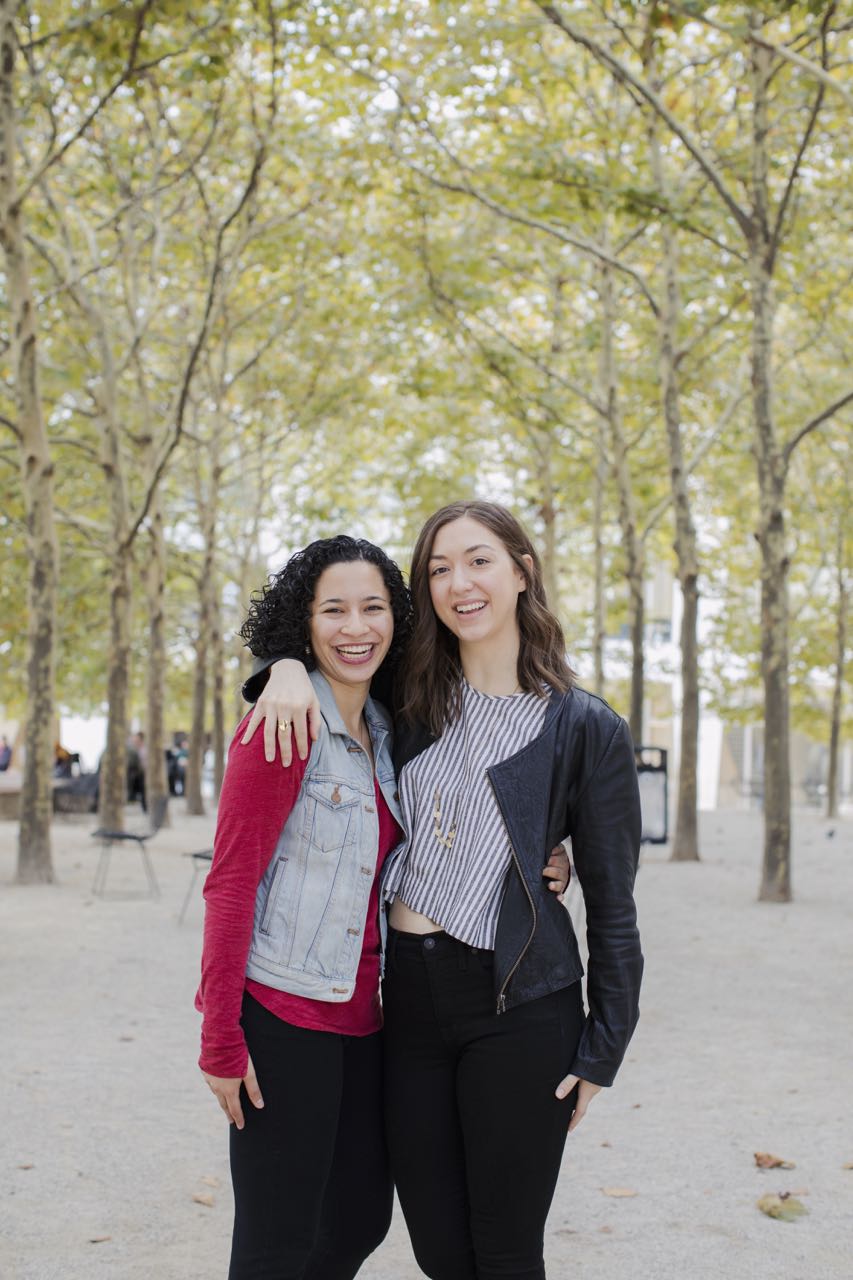
Lizzy Jutila
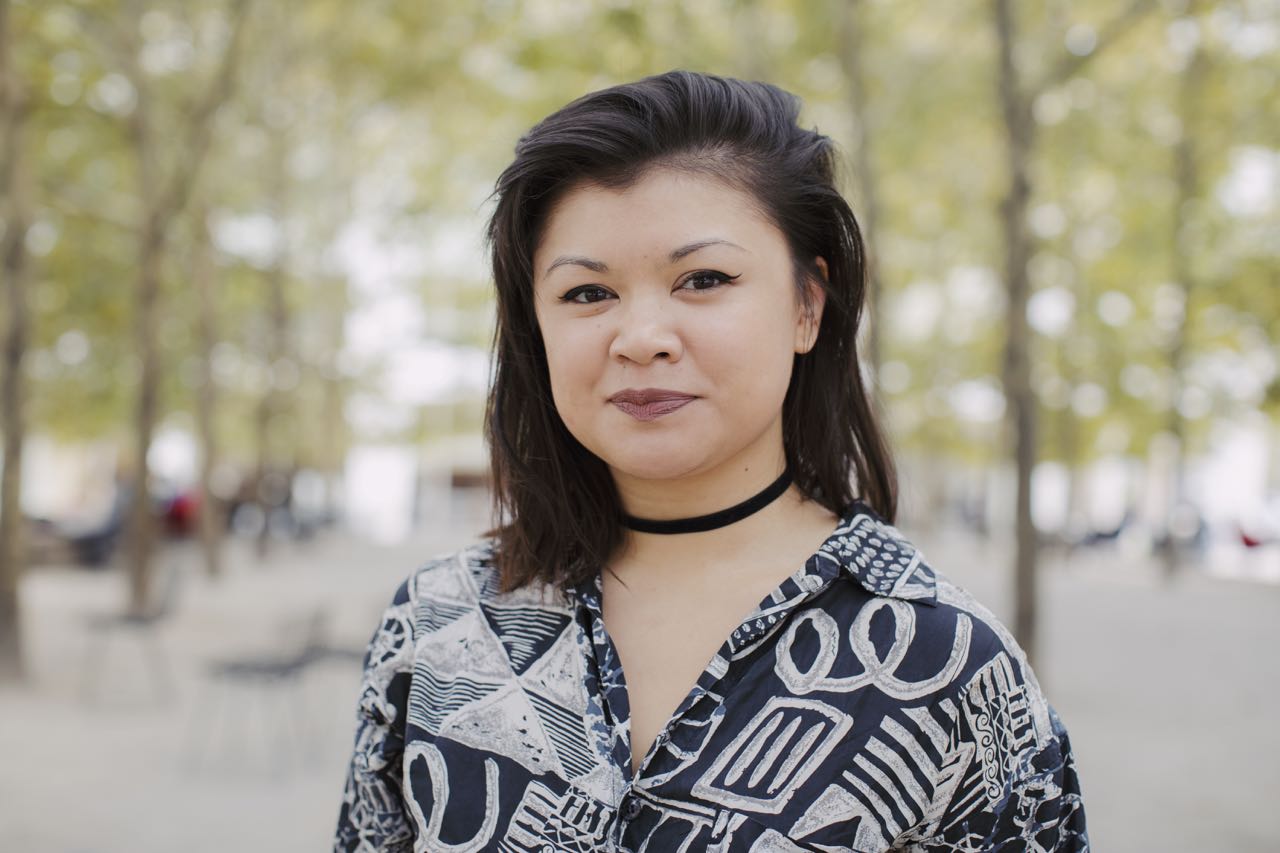
Since you’ve been with the show for a long time, what’s been the most interesting thing to you about that experience?
For some reason, the text that we say never seems to get old. There’s always something relevant and there’s always something that just makes sense or makes the language more severe or more “right here, right now.” There are also a lot of times that we’re still picking up on things that we’ve never heard before. And also, our relationships have developed over time, so there’s a new layer of how we’ve bonded, which makes the language even more natural too, I think.
What do you find to be the most interesting thing about your character and has that changed over time?
She’s gotten stronger, in a way. I think between last year’s run and this year’s run, I was bummed out about the show, and it made me stronger as a person too. Now I see her as a stronger warrior and pretty tough—tougher and cooler than how I first saw her.
The Wolves has an all-female cast and female director and writer. What has it been like working with such a big group of women?
It’s definitely inspiring because I’ve never worked with an all-female group. I think the show has to be done this way. It made me think more about issues in the world, too. I never realized how strong an all-female production could be because I’ve never really had the opportunity to do that before. I have been in a mostly female cast before, but it was directed by a man, so this is my first experience of it and I want to do it again.
What do you think the theatre community can do to have more stories by and about women on stage?
Sharing your story. Not feeling like you should feel scared or unimportant enough to keep your experiences unknown. I think more women can allow themselves to be heard and not feel guilty for sharing because they might open up a discussion for others who connect and can finally speak out. I think everything that’s going on in the media lately about sexual abuse and harassment have, for sure, sparked the fire of discussion everywhere, and it allows women to write and produce about their own experiences. I know that I’m finally comfortable to admit my own past and I want to start writing a play because now I know I have a backbone of support if I feel scared. I don’t even consider myself a writer, but I have never before wanted to create something so vivid and important. Knowing that you’re not alone helps create the work to be made.
What’s your relationship like with ambition?
Ambition has carried me through to where I am now, since I first stepped on a stage at age six. When I was a young girl, all I knew was that I wanted to be strong, be career-driven and to just act. To be paid to play was the best I thing I could ever imagine, and [I didn’t understand] why anyone would want to do anything else. I didn’t know how I was going to get there, but with ambition, I trusted that the right time and place would help me carve my desired path. I can now say I am where I pictured I would be when I was younger. And now that I’m here, it doesn’t mean I should let go of that ambition. It’s still burning and I am excited for where it will take me next, even if that means I have to be patient.
What’s something that you’ve learned from working with cast mate Paola Sanchez Abreu?
Paola is our newest member of team and yet I feel like I’ve known her for years. We get along on and off the turf so well, she’s like my soccer sister. Paola has done such an incredible job jumping right into the work and crushing it. She also played soccer for years, teaches yoga, and is very active, like me, so we take a fitness class together from time to time and maybe go out dancing. She doesn’t play games, but she does know how to balance having fun and working hard.
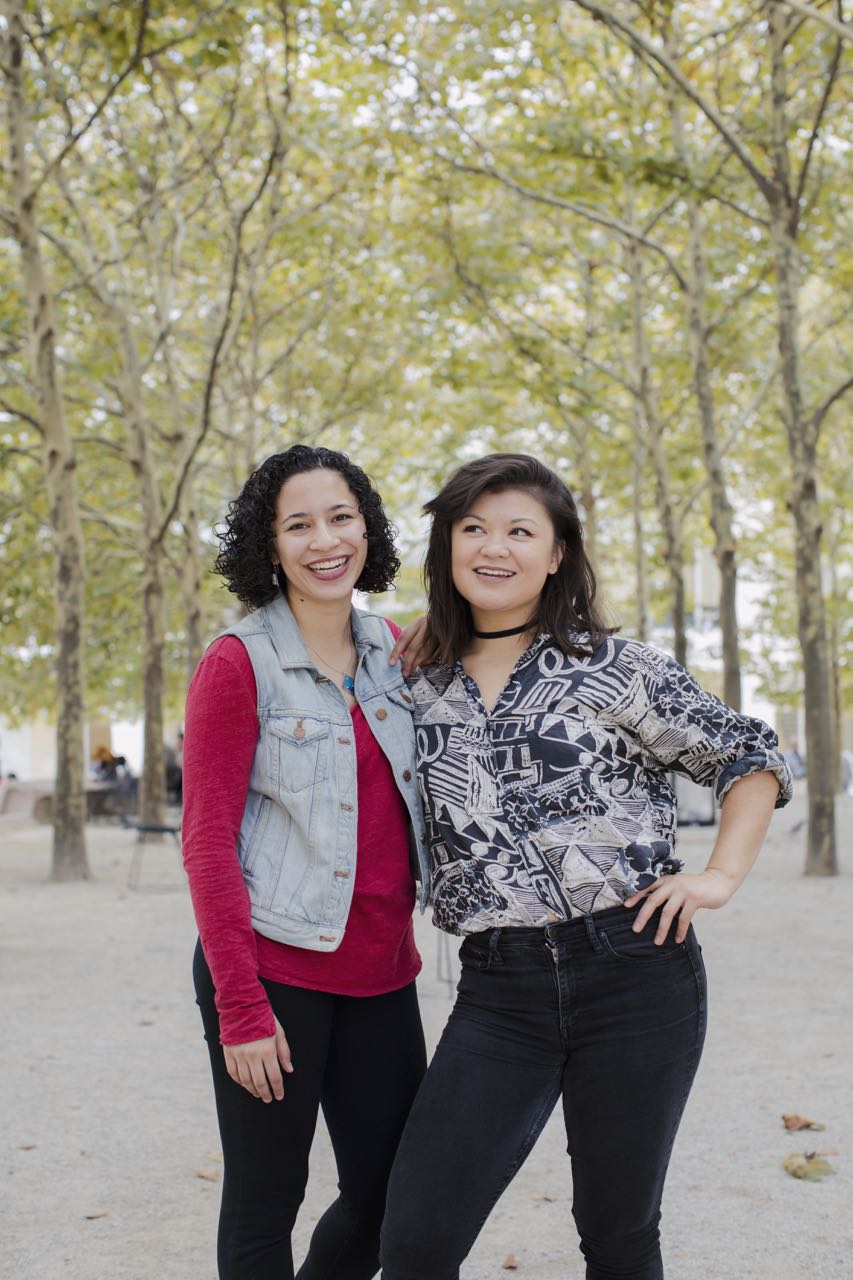
Sarah Mezzanotte

Since you’ve been with the show for a long time, what’s been the most interesting thing to you about that experience?
I think that what is incredible about this show is the connection that all of us have really fostered as people, not just as the characters within the play. The rehearsal process has always been more about bonding and getting to know each other and really fostering that sense of being a team. This recent rehearsal period has been even lovelier than ever because we didn’t think we’d ever get a chance to do this again. We are just continuing to excavate the relationships that we had already created. We have so much fun—almost too much fun—but I think it has taught me a lot about acting and about really using what you have naturally, what just organically grows between people. That can make a much more interesting product when you have things truly in common with these people that you’re sharing space with.
What do you find to be the most interesting thing about your character and has that changed over time?
She is just a ball of sunshine and energy. I think that that can be mistaken as someone who has never faced hardship, but I think what makes her such an interesting character is that she has a ton going on in her life and a lot of pressure and a very rich, sometimes sad, internal life, but she chooses to be positive and to only put positive energy out into the world. I think that’s beautiful. I think at the beginning I used to lean a little bit more into the fact that she didn’t like cursing and that she really wanted to keep the morals of the group very pure. She played a little bit of the mom or the RA in that way, but I think now I have leaned more into just how much love she feels for everyone and that she’s never scolding. It’s more trying to just create a really happy environment.
The Wolves has an all-female cast and a female director and writer. What has it been like working with such a big group of women?
It is amazing. What a shame that it’s so rare, that it’s a phenomenon, because it happens all the time with men, right? All-male cast, male director, nobody says anything—it’s just another cast—but what we are doing is so special. That’s so beautiful, but also tragic. Long story short is that it’s the very best team that I’ve ever worked with. There are no egos and there’s true collaboration. I think that because it’s a lot of women who are really just happy to be working with each other and really appreciative of this opportunity and really care about this story. When you have a bunch of driven women I don’t think there’s anything that you can’t do.
What do you think the theatre community can do to have more stories by and about women on stage?
I think we have to work on de-stigmatizing it and we have to work on our vocabulary around it, because I know that there are people that I am close with in my own life that if I’m in a production with mostly women or with a woman as the lead character, it is seen as a chick flick or girly, used derogatorily. There are all of these words and associations attached to something just because there are women in the cast or as the director. I think that we have to level the playing field that way. That when there’s a show about an all-girl soccer team, it’s just, “Oh, it’s a show about a soccer team.” We don’t have to focus so intently on distinguishing when there’s gender, especially since we always seem to attach gender when it’s female and really not when it’s male. Ultimately, it’d be a beautiful thing to get to a place where that’s not what it’s about at all, right?
What’s your relationship like with ambition?
I am a very competitive person, which is something that it took me a long time to get over. It sounds like a dirty word when you say it, but I think that it’s a perfectly fine thing to be ambitious. Sometimes I think it’s seen as greedy or self-serving or heartless or ruthless or something when someone is going after what they want, but I think that there are all different sorts of callings. If you follow what you feel you’re supposed to do, and if everybody did that, I think the world would be a much happier place. I think with acting, people always assume you mean you want a lot of money and you want a lot of rewards, but I think the chance to get to tell stories is such an amazing thing. Just to get to be in this career at all is like winning the jackpot.
What’s something that you’ve learned from working with cast mate Lizzy Jutila?
Lizzie is an unbelievably driven and focused cast member. I think from her, I have learned about work ethic. She has an insanely physically demanding part in the show. Every day she’d work out before the show, and then she’d do the show, and then she’d be stretching or cooling down after the show. She did that day after day, night after night. While she is super focused, she also brings a lot of fun. She has made some of the funniest jokes. She keeps it so light that it’s been beautiful to watch someone do both and balance both so gracefully.
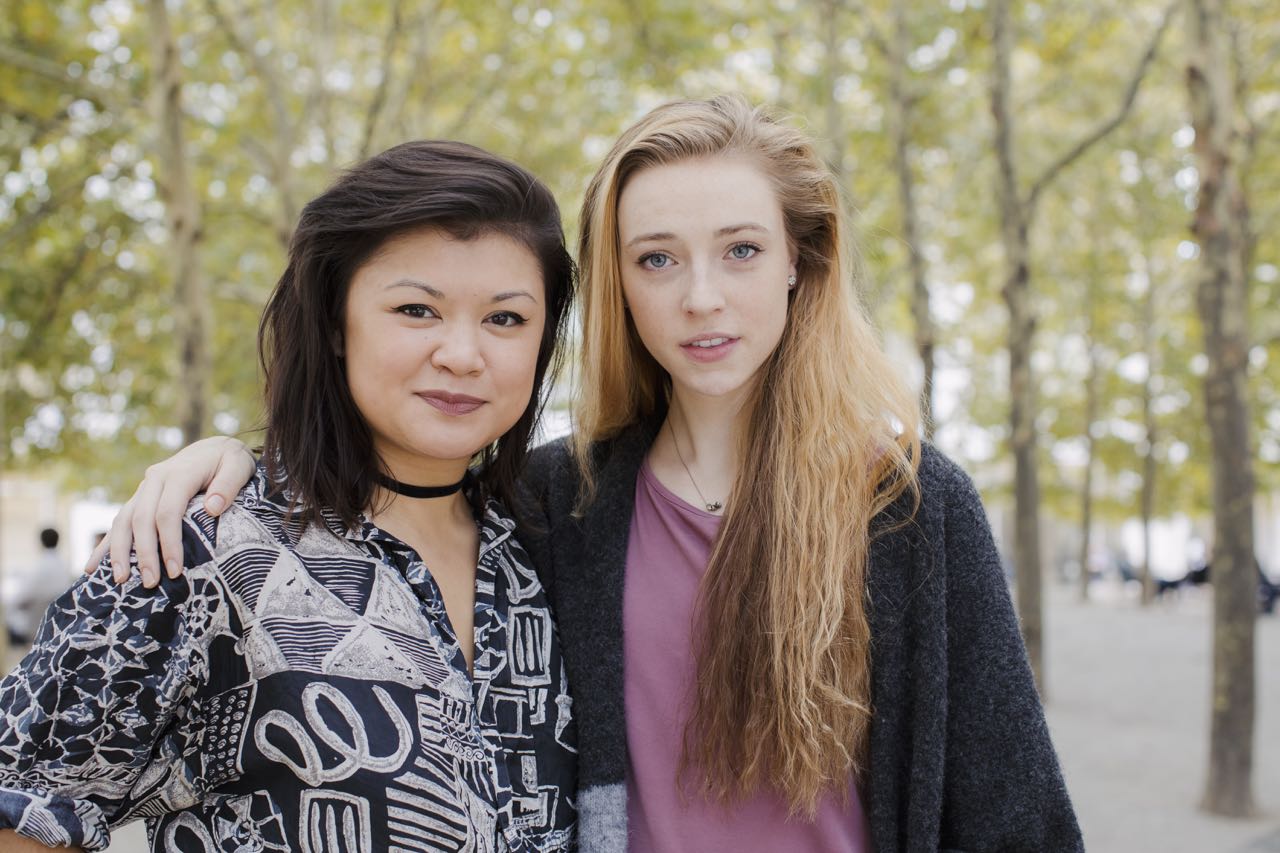
Samia Finnerty

Since you’ve been with the show for a long time, what’s been the most interesting thing to you about that experience?
I think the most exciting thing to see throughout the different iterations has been the way the cast has grown into an actual team in the way that we’ve stayed in contact when we’re not currently in a run. The way that we are excited to see each other after a long time in a very familial way is totally reminiscent to me of the kind of team dynamic we’re trying to portray in this show. I think a lot of that is due to how many times we’ve actually done this play together.
What do you find to be the most interesting thing about your character, and has that changed over time?
I deeply relate to my character in a lot of ways because she, for me, represents the most vulnerable and insecure part of myself. I think that’s something a lot of people can relate to, regardless of how confident they feel socially on a daily basis. I think the most potent thing that I’ve learned so far about my character that’s helped me the most is that regardless of her inability to express herself thoroughly all the time, she’s actually incredibly substantial and funny and interesting. Even though she seems to sort of lack her own identity, there’s a lot going on there. I think that’s what’s made me be able to stay in love with her throughout the iterations.
The Wolves has an all-female cast, and a female director and writer. What has it been like working with such a big group of women?
It’s wonderful. It’s really great. Everyone feels comfortable, and I think we understand each other on a deep level. I think part of the benefit to having mostly women in the cast and crew is being inspired by each other every day and wanting to follow in each other’s footsteps in making each other better.
What do you think the theatre community can do to have more stories by and about women on stage?
I think there are so many stories to be told about women because we are most of the population. I think every woman has a story, and it’s about choosing stories by women about women. I really think there’s just so much opportunity for stories about women to be told, and they’re very interesting. We were just in the dressing room listening to songs about brotherhood sung by women, and I thought that could be an interesting parallel in the theatre, just looking at all of the famous and important stories about brotherhood and seeing what they would be like if they were flipped on their head and told by women about women.
What’s your relationship like with ambition?
I have a myriad of ambitious women in my family. I grew up with ambition as a household principle, and so that drive for achievement was never a question for me. I just knew that that was part of my identity in growing up and who I wanted to be as a woman and as a person in the world—someone with a lot of goals.
What’s something that you’ve learned from working with castmate Sarah Mezzanotte?
I’ve learned so much from working with Sarah. I think Sarah is one of the most poised human beings I’ve ever met, and she exhibits the virtue of patience on a daily basis and that’s been inspiring to see. She’s unconditionally kind to everyone around her, and I think that informs her performance as well. I think I’ve learned a lot from her, both on the human side and the acting side on a daily basis.
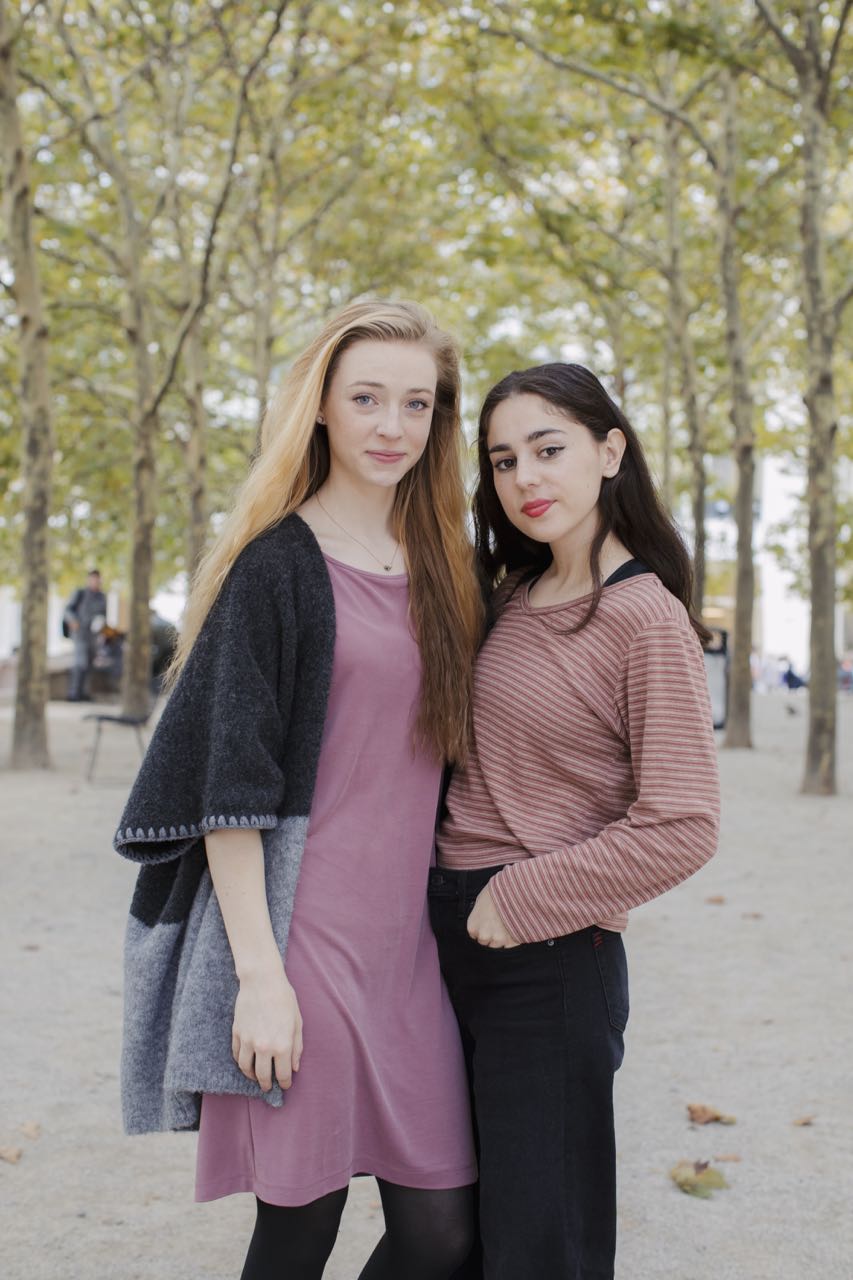
Brenna Coates
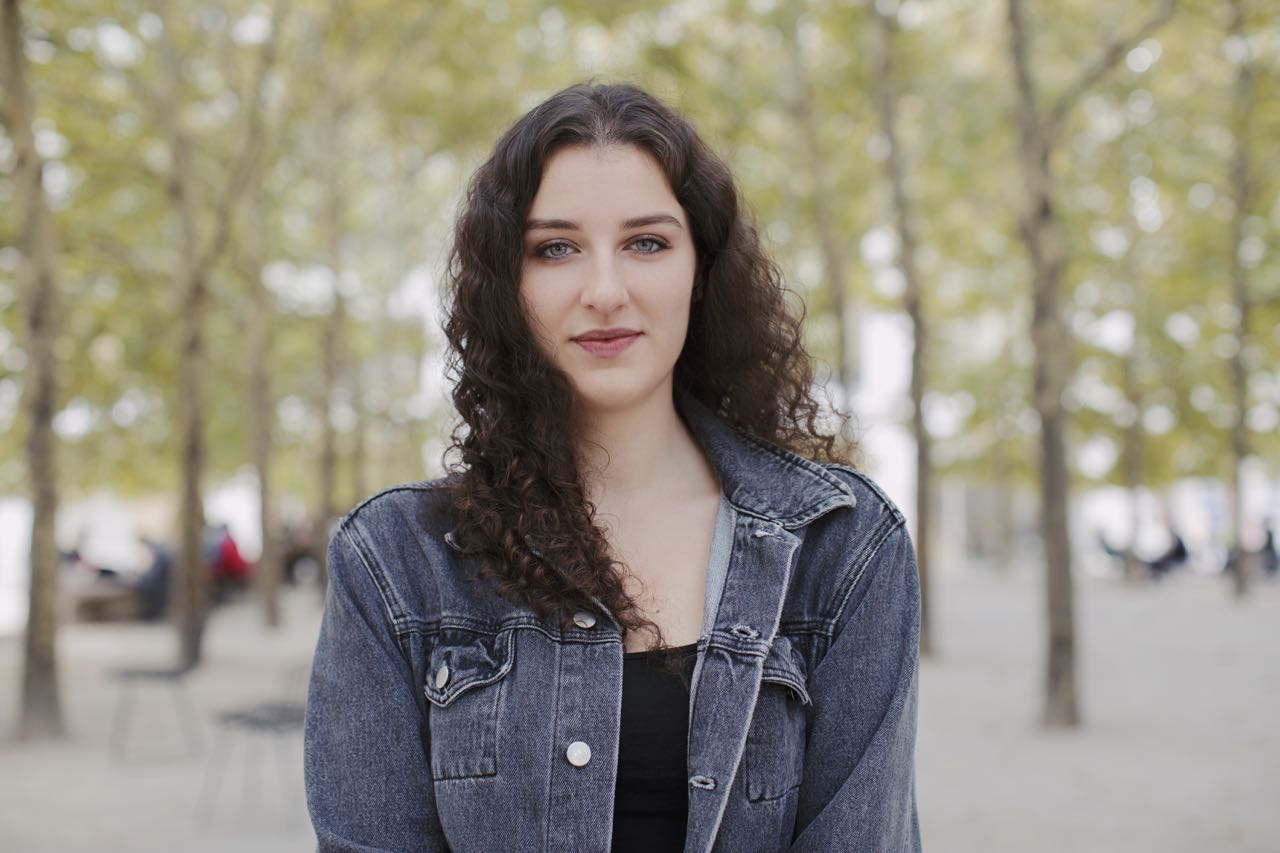
Since you’ve been with the show for a long time, what’s been the most interesting thing to you about that experience?
It’s been incredible. To say that I’m grateful would be a huge understatement. I’ve been with The Wolves for two and a half years now. It’s pretty remarkable to look back and think that I’ve kind of figured out how to be a professional actor and how to be a woman in this industry through this one play. I feel really, really lucky to be surrounded by the group of women I’m going through this with. I think the one thing that stayed a constant is my love for every single one of them and how much I learn from them every single day by sharing the stage with them. I think the one thing that still surprises me is that the response to this play has been so massive. I just think there hasn’t been any play like this before, and I want to know why. Like, why did it take the world so long to write a play that is about all women? We should have been doing this a long time ago. Do you know what I mean?
What do you find to be the most interesting thing about your character and has that changed over time?
I love playing her. She’s a 16, almost 17 year old, who has an insane amount of confidence and it sometimes verges on entitlement. But she definitely traffics in power and intensity. If you know me, those are things that I do not do, and certainly did not at that age. I remember being 16 and 17 years old and thinking, “Teenagehood is nearly impossible to survive.” I think the thing I just absolutely love about Number Seven is how she’s so certain she will survive it. I think it’s really empowering and I think that needs to be seen more.
The Wolves has an all-female cast and female director and writer. What has it been like working with such a big group of women?
Fucking electric. It’s been beautiful; they’re just my family, they really are. There’s profound love between us every single day. It’s not that we necessarily need to say this out loud, we just know it walking into that room every single day, being surrounded by women when the world is so bleak right now, and so sexist, and waking up every single morning to the news that comes out, we just feel this insane amount of love and respect for each other. We’re just really grateful that we get to be around each other.
What do you think the theatre community can do to have more stories by and about women on stage?
Just let us take over. Give it up. Just give it up. We just need to put women in higher positions. We need to fill these theatre roles with women. We need to stop seeing women as either objects of sex or being threatened by powerful women. We need to let women take over completely.
What’s your relationship like with ambition?
I’ve known that I wanted to be an actor since I was five years old. I think that when you know something about yourself and there’s no other option, no Plan B, you’re just driven by it 100%. There’s nothing else. You don’t want anything else to stand in your way. I’ve been really lucky, I’ve been supported my whole life. My family supports me in everything I do. That has definitely helped. I would say I get more ambitious each and every day, and it definitely has to do with being surrounded by these women in The Wolves. Some people are so, so ambitious. I’m definitely more of a chill person, but with that being said, I know what I want and I know who I want to be in this life and I don’t think that anyone’s going to stop me.
What’s something that you’ve learned from working with castmate Samia Finnerty?
She is my favorite person in the world. She’s one of the most talented human beings ever. Her intellectual grasp on this character is kind of crazy. She is also one of the funniest human beings I’ve ever met in my entire life. I think she leads with her heart and she’s so kind and she really sees the beauty in every single person. I think that in this industry when you’re kind of seen as interchangeable, qualities like that are really, really special and she’s teaching me to do that every time I hang out with her.
